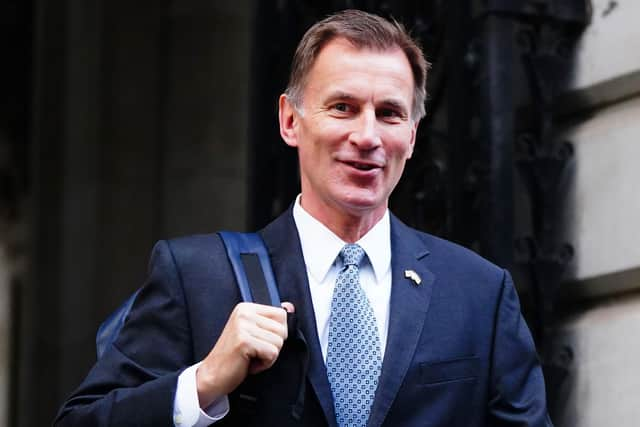Cost of Living: UK wage stagnation costing British workers £11,000 per year according to BBC Panorama
and live on Freeview channel 276
New figures from the Resolution Foundation think tank have revealed that UK wage stagnation costs British workers £11,000 per year. The research which focused on low-to-middle income households was exclusively revealed with BBC Panorama.
While this study looks at the effect of wage stagnation over 15 years it also acknowledges the cost of living crisis noting that in recent months, wages have failed to keep up with rising costs, meaning that millions of Britons have, in effect, had a pay cut.
Advertisement
Hide AdAdvertisement
Hide AdThe research found that a typical UK household income has fallen further behind those in Germany. In 2008, the gap was over £500 a year, now it is £4,000. Chancellor Jeremy Hunt acknowledged there is still enormous pressure on people’s finances in his Budget speech last week.
The Resolution Foundation said had wages continued to grow as they were before the financial crash of 2008, the average worker would make £11,000 more per year than they do now, taking rising prices into account. Additionally, Ipsos polling of more than 6,000 adults suggested that two-thirds of them think the economy is going to get worse in the coming year.
During his budget, Hunt said that the cost of living crisis was due to inflation which “destroys the value of hard-earned pay”. The government continues to argue issues with living standards are the result of rising prices, which have been driven up by the war in Ukraine and the legacy of Covid.
However, the study from the Resolution Foundation analyses the deeper issues. Torsten Bell, chief executive, said that the wage stagnation of the past decade and a half is "almost completely unprecedented”.
Advertisement
Hide AdAdvertisement
Hide AdBell said: “Nobody who’s alive and working in the British economy today has ever seen anything like this. This is definitely not what normal looks like. This is what failure looks like.”
Jeremy Hunt’s budget which was set to encourage people to “get back to work” created a narrative around UK workforce productivity. The BBC report says that economists say the key to increasing wages is productivity - a measure of workers’ output.


The UK has lower productivity than countries such as France and Germany, and the gap is getting bigger.
BBC Panorama looked at the reasoning behind the stagnation in wages, and found that a lack of investment was a factor. Prof Diane Coyle of Cambridge University tells the programme: "A lack of investment over decades has held back the economy, and made the UK less resilient than comparable countries to shocks like Brexit, Covid and the invasion of Ukraine."
Advertisement
Hide AdAdvertisement
Hide AdAdditionally, BBC Panorama looked at the effect Brexit has had on the economy stating that the Office for Budget Responsibility, the government’s independent watchdog, says that since the UK’s vote to leave the European Union in 2016, business investment in the UK has "stalled".
Comment Guidelines
National World encourages reader discussion on our stories. User feedback, insights and back-and-forth exchanges add a rich layer of context to reporting. Please review our Community Guidelines before commenting.
